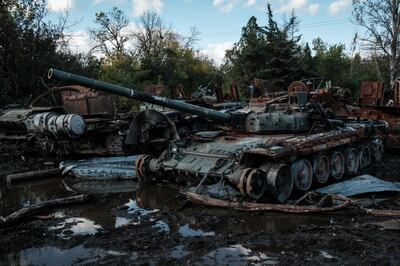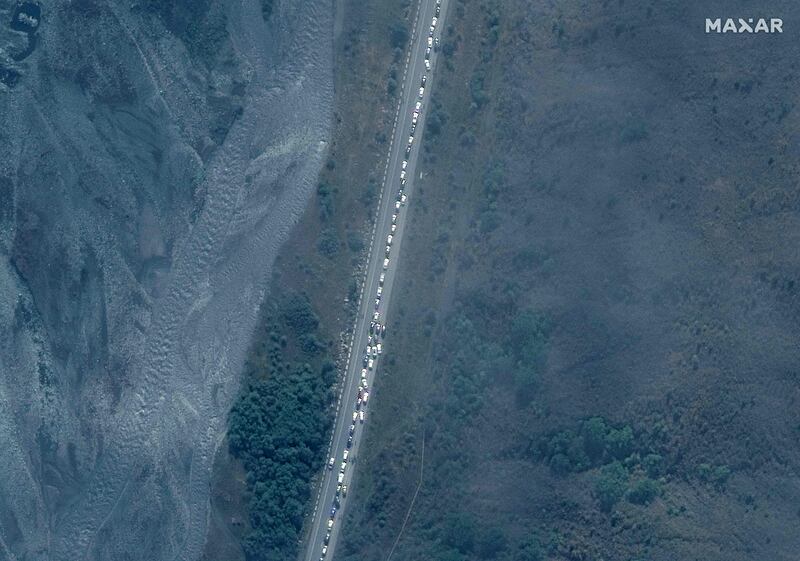A quarter of a million Russian men have fled Russia to avoid fighting in Ukraine, with scores of army recruitment centres suffering arson attacks, western officials have disclosed.
The scale of young men fleeing President Vladimir Putin’s demand last week for the mobilisation of 300,000 personnel has also destabilised the economy, with key workers abandoning their jobs.
With troops returning from the front line reporting chaos and bloodshed, officials said the war had become increasingly unpopular in Russia. They said the conflict had also led to 53 recruitment centres being set alight in protest.
In one incident, a recruitment director in Siberia was shot and wounded by a conscript and in another, a man set fire to himself.
Western officials confirmed that the estimate of 250,000 Russians escaping conscription appeared accurate.
Satellite images released at the weekend by Maxar Technologies showed long lines of cars on roads snaking to Russia’s border crossings with Georgia, Kazakhstan and Mongolia.
“People who have left Russia have resigned from their jobs because they wanted no part of the war,” one western official said. “Many more in Russia are understanding what a terrible error this war is, but don’t quite know what to do in order to stop it or to get Russia out of these terrible circumstances that they're in.”
Some young men are reportedly leaving as soon as they received a call or message to pick up their call-up papers. Others are attempting to be remain untraceable by moving home. “Some are fleeing, some are hiding and some are taking direct action,” the official said.
Mr Putin’s mobilisation was a “huge risk” but one that he had been forced into by a depleting army. An estimated 20,000 Russians have been killed and up to 60,000 wounded since the conflict started in February.

It was also reported that in the last few weeks, there was considerable tension in Moscow over the call-up and direction of the war. “People are very anxious and it feels a bit like what it felt after the invasion started in February,” the official said.
“Russian state media has been happily stating that the Ukrainian military counter-offensive had totally failed and that the Ukrainians were totally hopeless. Then, of course, they were totally shocked and aghast when the Ukrainians swept through and retook significant territory. It was one of those reverses they could not deny.”
The impact of the invasion and the western sanctions imposed on Russia have caused the country's economy to shrink. This has been exacerbated by the mass exodus of young men. The migrants are also understood to be well-educated as only 30 per cent of Russians have passports.
“This is going to make the economic problems even more baked in for a miserable future for Russia,” the official said. “This is a big portion of Russia's economic capability and skilled workforce. Clearly, this is really bad for the Russian economy. [Recruitment] officials are taking large numbers of their workforce and quite large numbers of their staff have left — and that's having an impact.”
There were now “cracks appearing” in the Moscow elite, with people seeing that Russia had been “humbled by the colossal error” of invading Ukraine.
“One of the reasons that more Russians are understanding just how they are being lied to as they know this isn't Russian territory, it's Ukrainian territory,” the official said. “It is such an enormous error that it will have consequences.”







